Why is Harvey Weinstein's appeal of his criminal conviction hidden from public view?
The prosecution of Harvey Weinstein, which spurred the #MeToo movement and remains one of the most prominent criminal cases in recent memory, has been sealed off from public scrutiny at New York's highest court.
In August 2022, former Chief Judge of the Court of Appeals Janet DiFiore allowed Weinstein to appeal his underlying convictions to the high court, where he is challenging multiple aspects of the jury selection process and trial testimony.
In 2020, a Manhattan jury found Weinstein guilty of rape and committing a criminal sexual act in relation to two women. He was also convicted last year of rape and several other charges in relation to a 2013 Los Angeles incident with a model/actress.
His attorneys have contended that the trial-court judge in the New York case improperly allowed a biased individual to serve on the jury and unfairly permitted evidence of prior misdeeds to be introduced through trial testimony. Now, they are seeking to overturn the guilty verdict.
So far, Weinstein's attorneys and the Manhattan District Attorney's Office have submitted a flurry of briefs in the matter.
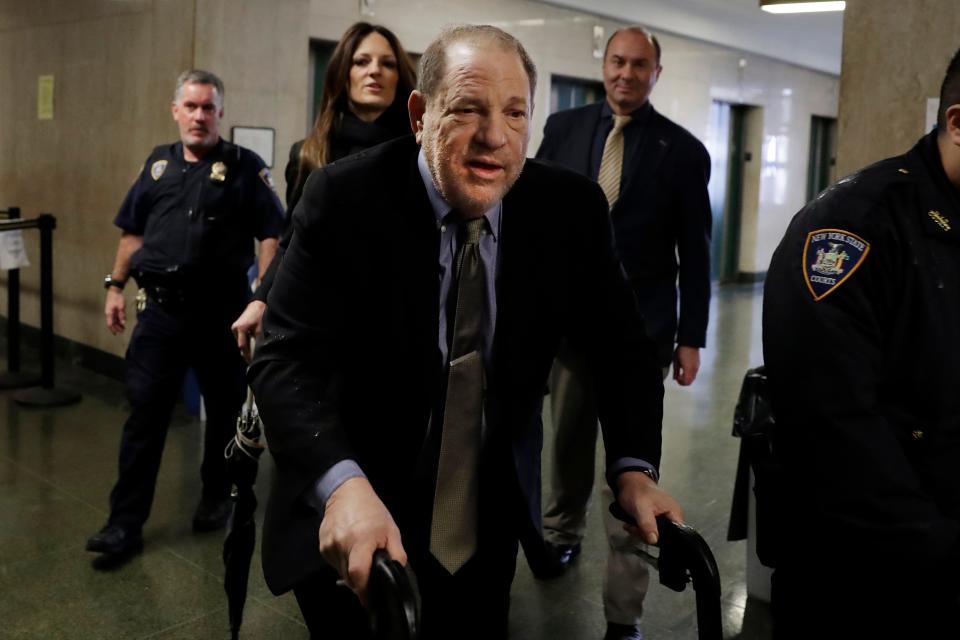
If the Court of Appeals agrees with Weinstein's argument, it could go as far as to void his conviction, which would be the most stunning development in a #MeToo prosecution since the Pennsylvania Supreme Court threw out actor Bill Cosby's sexual assault conviction in 2021.
But the public may never know the likelihood of a similar outcome in the Weinstein case, or what arguments his attorneys are making in order to achieve this objective. That is because the entire case record before the New York Court of Appeals has been sealed from public view.
"The public has to be able to ascertain whether or not the court reached the right result, and it will be impossible for them to do that if they don’t have access to the materials the court relied upon to form its judgement," notes Daniel Novack, co-chair of the New York State Bar Association's committee on media law. "You have to have some level of transparency, otherwise it’s a black box."
The USA Today Network New York became aware of the sealed records as a reporter attempted to ascertain the status of Weinstein's appeal. Transparency in court records is essential to reporting on court proceedings involving those charged with criminal conduct.
On Dec. 15, counsel to Gannett Co., Inc., the parent company of the USA Today Network, filed a motion with the Court of Appeals to unseal the appellate docket and allow the public immediate access to all documents filed in the appeal.
"The press, as a surrogate for the public, has a presumptive right of access to all judicial documents," Kelly McNamee, of Greenberg Traurig LLP, said last week. "We submitted this motion on behalf of The Journal News to vindicate the public’s access rights and to ensure the media can continue to report thoroughly and timely on Mr. Weinstein’s appeal — one of the most notorious, and significant, sexual assault cases that has ever been prosecuted by the state of New York."
After this story published, Juda Engelmayer, a spokesperson for Weinstein, reached out to the USA Today Network-New York said he expects the records will be made "more public," with some redactions, after public arguments in court early next year.
Weinstein's LA conviction Harvey Weinstein found guilty of rape in LA trial more than 2 years after previous convictions
Reporting court decisions enhances public trust
Research has shown that increasing transparency has a positive effect on public trust in the judicial system. One 2015 study from Dutch researchers found that broadcasting court proceedings to the public enhanced their level of trust in the judiciary.
"Some people will look to it as a chance to catch bad behavior," Novack said. "But just as often, it's used to give people comfort that things are largely working correctly. Trust but verify."
Mt. Vernon reconsiders recording ban Mount Vernon to reconsider law restricting access, recording in City Hall
Is it normal for court records to be sealed in NY?
Though court proceedings and materials are generally accessible to the public, it is "fairly normal" for criminal case records to be sealed at the appellate level in New York, according to attorney Rob Rosborough, a partner at the Albany-based firm Whiteman Osterman & Hanna.
That is true even at the Court of Appeals, which is the state's highest court. However, Rosborough said it was less common for all records in a case, including legal briefs and motions, to be sealed. But "it depends on the facts of the case," he cautioned.
Gary Spencer, a spokesperson for the Court of Appeals, told the USA Today Network that the Weinstein case materials were either filed under seal or were being withheld by the court clerk due to Section 50-b of the Civil Rights Law, which shields the identities of sex crime victims within official records.
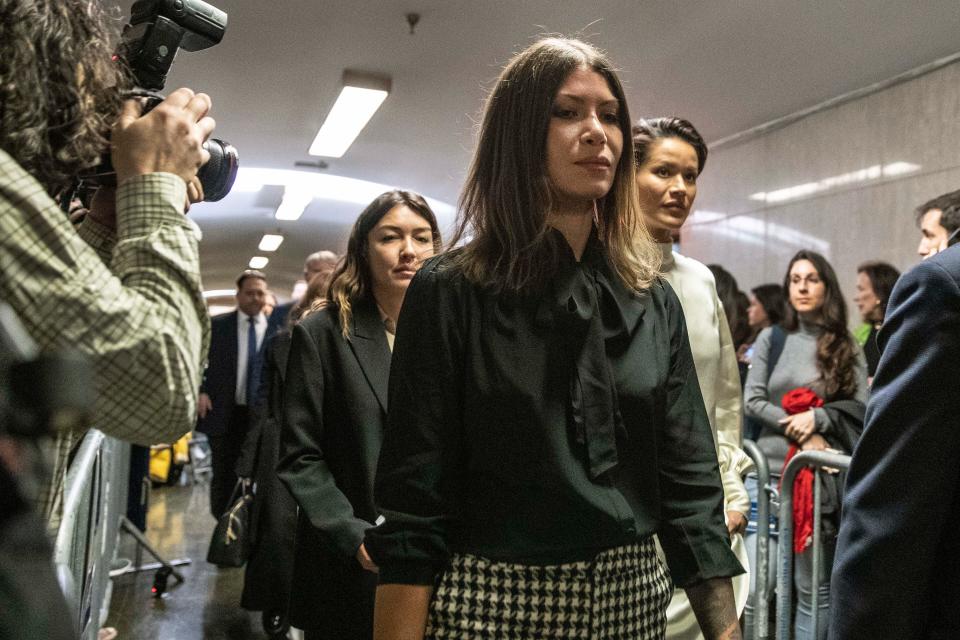
The origins of Section 50-b are somewhat counterintuitive. It was passed in 1979 at the behest of the Plattsburgh Human Rights Commission, which was incensed by the media's salacious coverage of a popular murder trial.
Multiple outlets identified by name a 15-year-old girl whom the defendant had sex with. In one case, a television news organization filmed the girl, who was the defendant's step-daughter, as she was leaving the courthouse. Following this incident, the commission pushed to codify some privacy protections for victims of sexual abuse.
Although Section 50-b was spurred by this kind of invasive media coverage, the bill's sponsor in the state Senate had to acknowledge during its passage that the bill "does not prohibit the media from disclosing the victim's identity."
The press' right to access to judicial documents is "rooted in both the First Amendment and common law, cannot be overridden by a state statute and certainly not by the overbroad and incorrect application of Section 50-b apparently relied upon by the Clerk of the New York Court of Appeals here as justification for the blanket sealing of the entire appellate docket," McNamee, of Greenberg Traurig, commented.
The Office of Court Administration, the administrative arm of the courts, had several issues with the bill and noted that "in many instances the identity of the victims will be disclosed" anyway, owing to the openness of court proceedings to the public.
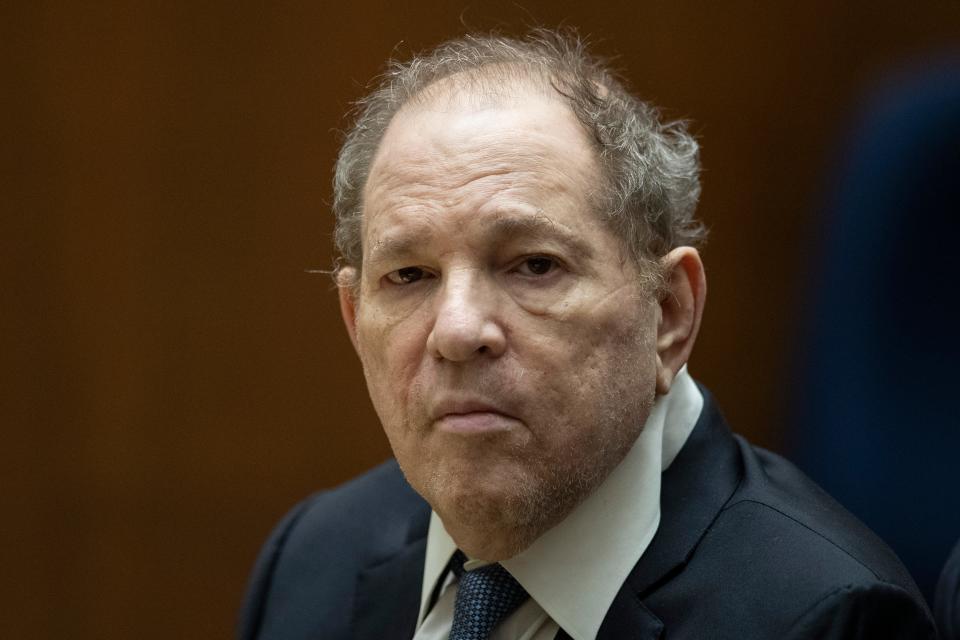
Weinstein's case: The world is watching
This is exactly the case with the Weinstein appeal, where the underlying criminal case was covered more extensively than most any other case in the #MeToo era.
Scores of media outlets from across the world descended onto Manhattan to cover the trial. The names of nearly every victim and witness have been published countless times in connection with this coverage.
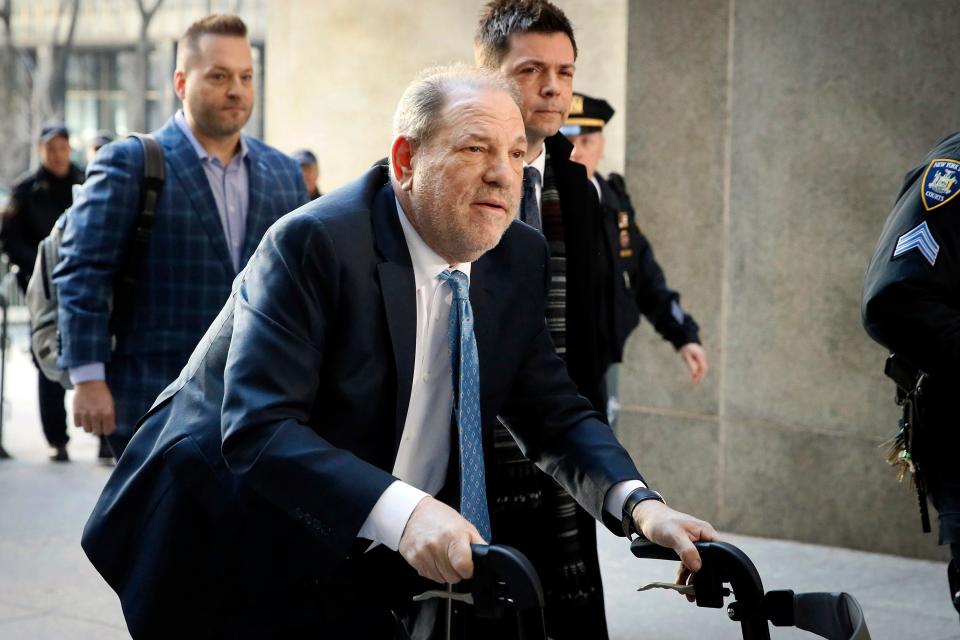
In 2017, USA Today published a list of 80 women who had by that point accused Weinstein of abuse or other inappropriate behavior.
"It sounds like the cat is already out of the bag," commented David Korzenik, a lawyer and First Amendment scholar. "I see no justification for the sealing the appellate records at all, particularly if all the stuff is already out there."
Miriam Haley, one of the two women whose allegations against Weinstein formed the basis for his New York criminal convictions, said she found the secrecy surrounding Weinstein's appeal "very curious," given the high-profile nature of the underlying trial.
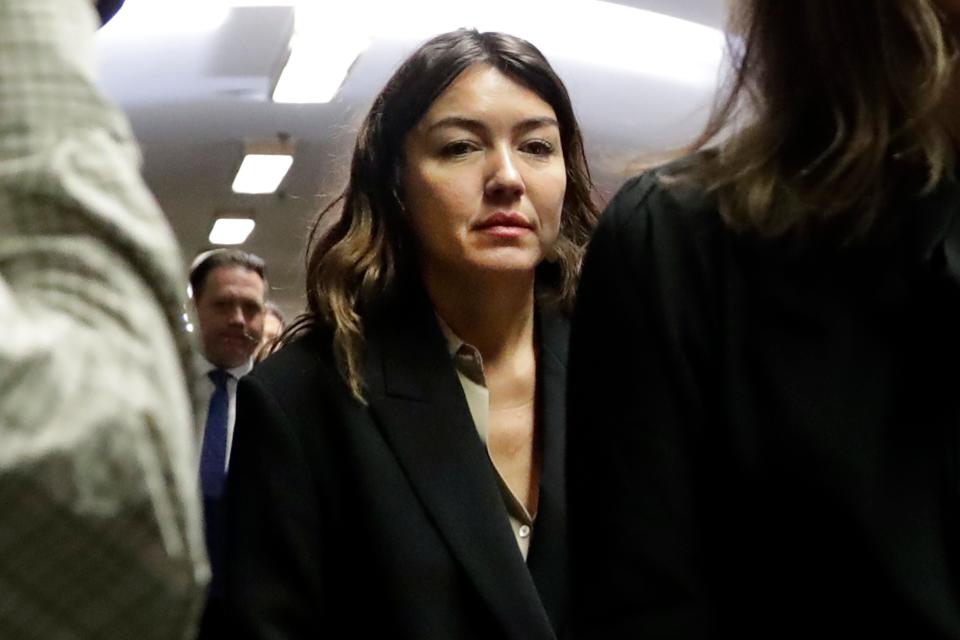
She disputed the notion that this confidentiality was being applied for her, or anyone else's, benefit, and emphasized her belief that the judicial process "should be fully transparent."
"I don't think it has to do with protecting my privacy or any other witness' privacy because that's never been a consideration in the past," Haley told the USA Today Network New York. "This has been such an important case that many, many people have followed all over the world. And so I think it's very important that everything they're trying to argue is fully known."
Public access to judicial records is protected by the First Amendment, and when access can be curtailed, according to Korzenik, "it would require them to redact" material rather than completely withhold it.
"I’ve never heard of that," he said of the decision to seal an entire case file. "It doesn’t make any sense at all, unless there’s some kind of extraordinary national security matter."
Asher Stockler is a reporter for The Journal News and the USA Today Network New York. You can send him an email at astockler@lohud.com. Reach him securely: asher.stockler@protonmail.com.
This article originally appeared on Rockland/Westchester Journal News: Harvey Weinstein's appeal of conviction shielded from public. Why?

